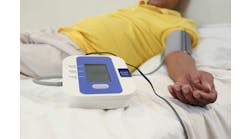The New Jersey-based Camden Coalition has two decades of experience designing and improving interventions that provide whole-person care to individuals with complex health and social needs. Now the nonprofit organization has developed a Complex Care Certificate, designed to build frontline providers’ skills and confidence in delivering person-centered care for people with complex needs.
Health systems, recognizing the systemic inequities facing communities of color and low-income populations, are asking more healthcare workers to understand the impact of community and individual trauma and to identify and address health related social needs, according to the Camden Coalition. There has been increased on improving equity and on screening for and addressing social drivers of health. Through its experience, the organization says it has learned what works – and what doesn’t – to improve the health and well-being of this population.
In 2020, the organization’s National Center for Complex Health and Social Needs released the Core competencies for frontline complex care providers, which identifies the knowledge, skills, and attitudes needed for members of the complex care workforce. It set out to use those newly defined competencies as a framework to create training and education resources and ultimately a comprehensive curriculum that would prepare providers across disciplines to do this complex work in a way that supports them as well as the individuals they care for.
Over the last two years, the Coalition engaged leaders in the field — including individuals with lived experience of complex health and social needs — to develop a suite of courses that trains teams of frontline staff in the complex care core competencies. With the support of Kaiser Permanente, the SCAN Foundation, and the Robert Wood Johnson Foundation, the nine online courses that form the Complex Care Certificate are now available to organizations everywhere through the Camden Coalition Learning Center.
The Complex Care Certificate trains teams of frontline providers – along with their supervisors – to deliver care that is person-centered, equitable, data-driven, cross-sector, and team-based. The team-based approach to this training provides a common framework and shared language to help interdisciplinary care team members leverage their diverse experiences, educations, and backgrounds to provide holistic, whole person care. Additional offline interactive team activities reinforce new knowledge through simulated practice and discussion in a group setting.
Threaded throughout the coursework are case studies, including those of Sandy and Jerome. Over the nine courses, learners will come to know Sandy as strong and independent and will hear about the challenges she experiences navigating social and behavioral health services due, in part, to the stigma she faces as a sex worker. Jerome is a veteran who loves to tell stories. He is experiencing social isolation but also PTSD, which is impacting his health and well-being. How do you build trust with Sandy? How can you help Jerome get the support he needs?
With each course, learners apply their new knowledge to “encounters” with individuals like Jerome and Sandy. Courses also include role-plays of real patient and provider interactions, and stories from patients and people with lived experience that bring the training to life in a way other trainings do not. By anchoring the training to real-world examples, learners become immersed in the realities of complex care work and practice their newly acquired skills in a way that reflects what they will face in the community. Kaiser Permanente plans to roll out the Complex Care Certificate to 2,000 community partners working in California safety net healthcare organizations later this year.
The Complex Care Certificate consists of nine online, self-paced courses, each of which takes 60-90 minutes to complete. They feature a diverse array of education methods including mixed media (e.g., video, audio, and interactive elements), links to research, patient and practitioner stories, and reflection and discussion questions where learners can interact with their peers.
The nine courses that make up the Complex Care Certificate include:
- Introduction to complex health and social needs
- Relationship-building in complex care
- Power and oppression in complex care
- Trauma-informed complex care
- Harm reduction in complex care
- Motivational interviewing in complex care
- Care planning in complex care
- Complex care delivery
- Collaboration and communication in complex care teams
In addition, the coursework begins with a primer on complex care and concludes with a systems change project, which is an opportunity for teams to come together to address larger barriers to health and well-being.


